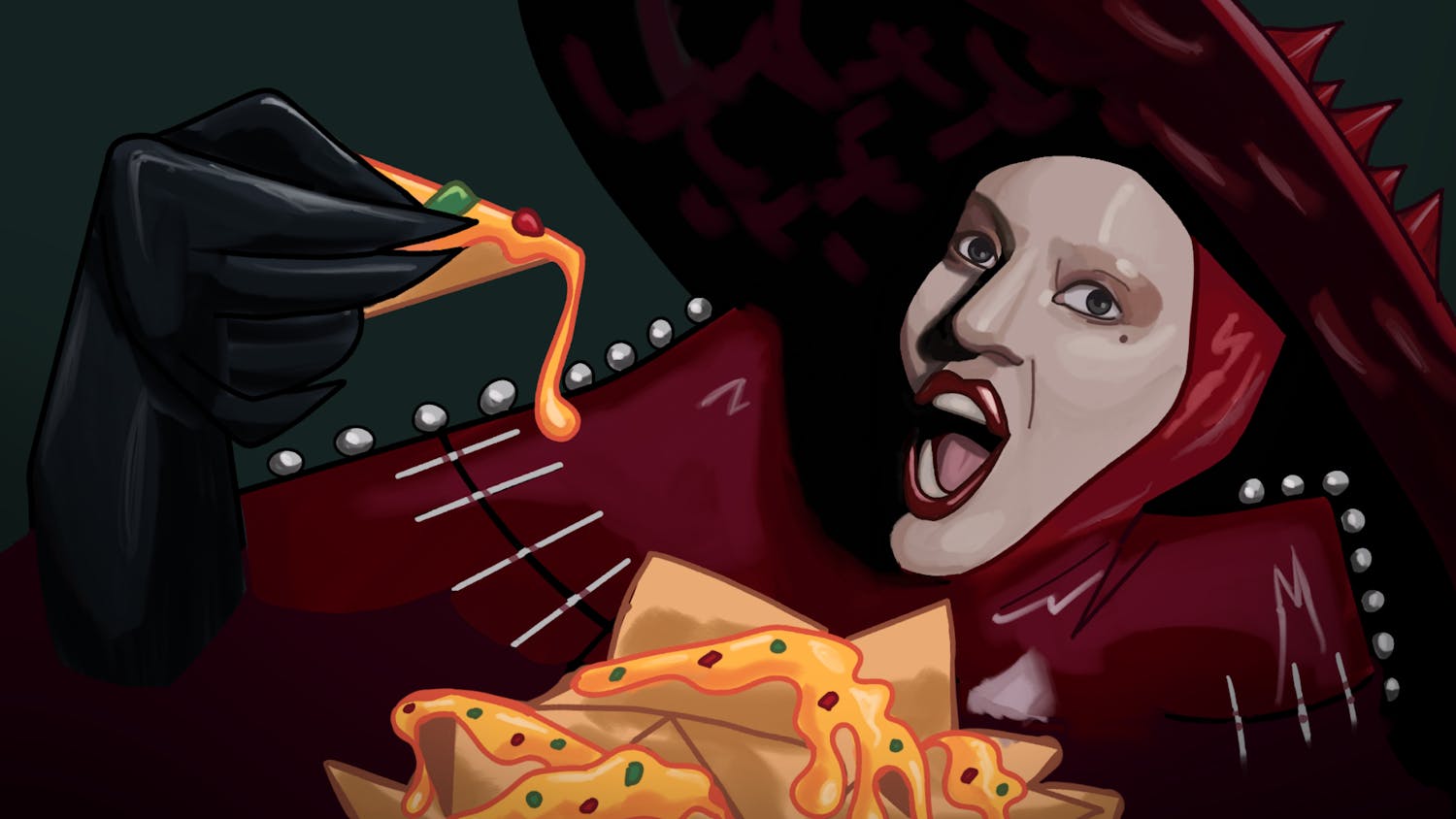To Brother Ali, hip-hop is about more than music. It’s a culture, a lifestyle, a community and an account of the social and cultural issues that the evening news can only speak of in the third person. This Thursday, Nov. 13, Brother Ali returns to his hometown for an eagerly anticipated show at the High Noon Saloon. I spoke with the artist about his upcoming show, what music means to him and the potential it has to change the world, one listener at a time.
Originally from Madison, Brother Ali spent his childhood moving around the Midwest with his family. In the midst of a rapidly changing world, hip-hop was his constant. “[Hip-hop] was the community who raised me, and it was the language of that community,” Ali told me about his early years. “It was a very empowering thing … I was able to turn the fact that I was different into something to be celebrated, rather than something to be ridiculed.”
Brother Ali’s career in music developed in tandem with his affiliation with Rhymesayers Entertainment—a Midwest-based hip-hop collective and record label founded by Minneapolis natives Atmosphere and Musab—before the label grew into what it is today. “It’s been amazing because I’m totally free to say what I feel I need to say, and that’s very rare,” Ali noted about his relationship with the Rhymesayers family. He then explained the impact of Rhymesayers Entertainment, and the Midwestern scene as a whole, on the hip-hop community: “Everybody starts their career independent now. I think the Midwest has had a lot to do with that. Atmosphere in particular had a lot to do with that.
“Everybody comes along and they do what they can do, and once they do it, that’s now part of the framework, and then the next generation builds off of that. I’m able to do what I do because of Public Enemy and The Roots and other people who came before me,” Ali told me about the independent nature of Rhymesayers’ artists, drawing on influences from all corners of the music world. “Honestly,” he admitted, “there’s a lot of indie rock and punk rock lessons that Slug [of Atmosphere] learned from [the punk rock scene]. Even though I don’t know a lot of the bands that he learned these techniques from, I owe them gratitude. Their music might not be my favorite music, but when I meet the indie and punk rock bands that Slug learned a lot of his techniques from that ended up becoming my tools, I feel more empowered knowing where my tools came from.”
Like many of the punk bands that came before him, the scope of Brother Ali’s music extends beyond the context of the music scene. Ali uses music to voice his concerns about troubling aspects of our society, most of which stem from the nature of our society itself. “We live under a system of domination,” he said. “Male domination. White supremacy. Our economic system is based on people with money using and abusing people who don’t have money.”
Brother Ali explains that music may be the perfect vessel to carry his message. Although this system of domination touches everything, including art, there is a silver lining in the nature of art itself. “Music and art are cultural acts,” he states. “They are ways that communities of people express their lives and communicate messages about who we are, how we live, what’s beautiful about us and the lessons that we’ve learned. Now we’re taking cultural acts and turning them into a buyable, sellable commodity.” The idea of art as a product seems troubling to its potential to carry a genuine cultural message, but Brother Ali elaborated to explain why it will never be stifled. “There are people who still approach music and art as a cultural act. It’s going to be difficult for a commodity to speak, but if somebody still treats it as a cultural act, then it’s impossible for it not to,” he insists. “Our lives, our messages, and what we’re going through … It all shows in the music.”
Speaking further of the ubiquitous system of domination about which Brother Ali warns his audience, we discussed his views on racial tensions in our country that received mixed reactions several years ago in the wake of Trayvon Martin’s death. “We are socialized and taught and raised under these systems of domination,” he stated. “White supremacy as a doctrine is the thought that white ways of living are more valid, more valuable, and should be protected, while other ways are seen as a threat. That needs to be un-learned.” This may seem like a simple solution, but Ali clarifies that the doctrine of white supremacy extends far deeper than what most people see as “racist” behavior, and the journey to undo this system is complicated. “People who want to be good people, and who don’t want to be what they think to be racist, have been trained under the doctrine of white supremacy for their entire lives. It takes a lot to undo that learning.”
Brother Ali argues that this doctrine existed long before our nation’s conception, and that the concept of “whiteness” as a cultural identity carries no meaning outside of the context of oppression. “Being a German person or being an Italian person or being an Irish person … is not the same as being white. Being German is real, being Irish is real—it’s the experience of people who have built a cultural identity. Whiteness only exists as an identity to dominate other people.” Again, Ali reminds us that notions of peace and equality can only be applied when this long-standing system has been erased. “It needs to be un-learned,” he insists, “and it’s not something that’s going to happen immediately.”
Tickets are still available for $18 in advance or $20 day of show.





